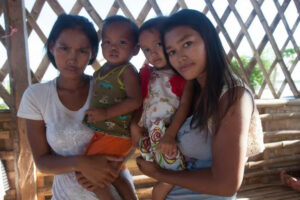CHILD MARRIAGE remains widespread in parts of the southern Philippines despite a law prohibiting the practice, exposing thousands of girls to lifelong risks, according to the United Nations Children’s Fund (UNICEF).
In Jolo, Sulu, and Bongao, Tawi-Tawi, one in six girls is married before turning 18, the report found, the UN body said in a report released on Monday.
“Child marriage and early unions can interrupt education, compromise health and place girls in roles they are not yet ready for, including motherhood,” Patricia Lim Ah Ken, UNICEF’s child protection chief, said in a statement.
The Philippines ranks 12th globally in the total number of child marriages. The Bangsamoro Women Commission earlier estimated that about 88,600 girls had married before reaching adulthood.
A separate study by Plan International and the Women’s Refugee Commission showed that in the Bangsamoro Autonomous Region in Muslim Mindanao (BARMM), 15 of every 100 girls marry before age 18, and two before 15 — rates significantly above the national average.
UNICEF cited cultural norms, poverty and weak enforcement of protection laws as key factors behind early marriage in the Bangsamoro region.
In some Muslim communities, early marriage is viewed as a way to prevent what is considered haram, or forbidden, such as premarital sex or pregnancies outside marriage. Economic hardship also pushes families to marry off daughters to ease financial burdens.
“At the age of 16, I already had a child — the greatest blessing in my life,” said a woman from Sulu interviewed for the study. “But it was also difficult, because I had to face so many challenges. I didn’t have a job, so I had to rely on my parents for everything.”
These practices persist despite the passage of Republic Act No. 11596, the 2022 law that bans and criminalizes child marriage. The law penalizes those who facilitate or solemnize underage marriages, but enforcement remains weak in the Bangsamoro region due to limited government reach and sensitivities around religious customs.
Local officials said the law remains poorly understood. “I don’t think there’s any law yet prohibiting marriage below 18. We haven’t heard of it yet, and we haven’t had any training about it,” the report quoted a local official in Tawi-Tawi.
A social worker in Sulu said awareness must be strengthened: “Before it was passed, it probably wasn’t spread in the community.”
UNICEF urged more targeted interventions, including scholarships and alternative learning programs to keep girls in school, livelihood support to reduce economic pressure on families and closer engagement with religious leaders to challenge harmful traditions.
The report said child marriage in the Bangsamoro reflects deep governance and cultural gaps, showing that “laws alone cannot undo centuries-old norms.” — Erika Mae P. Sinaking

